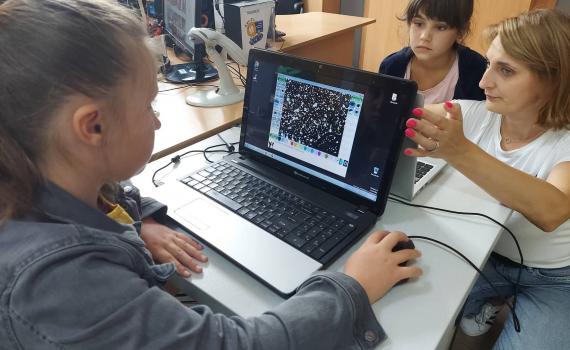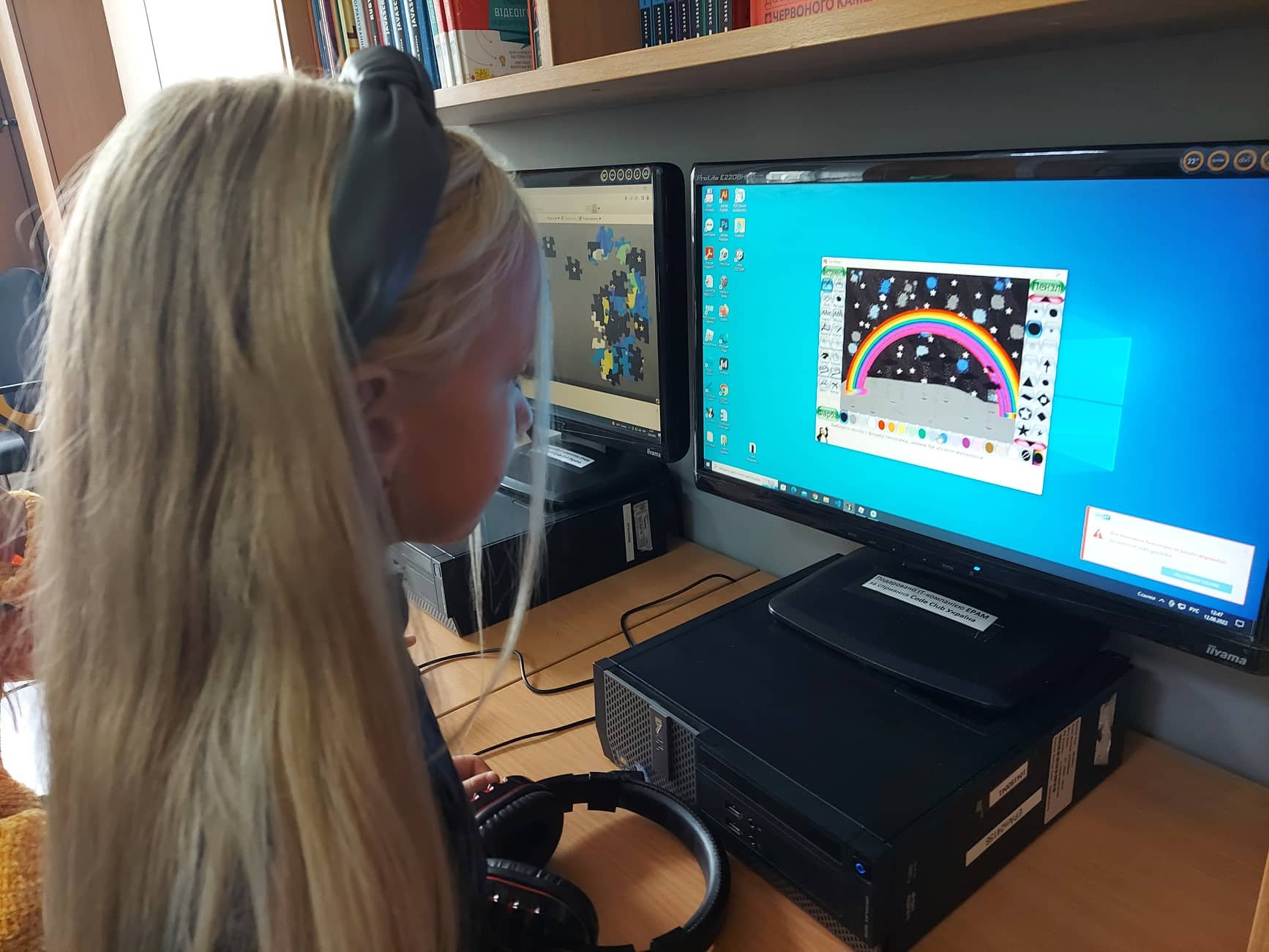
Since Russia’s full-scale invasion of Ukraine in February 2022, thousands of forcefully displaced and traumatized families have taken refuge in the city of Lviv in western Ukraine. Housed in temporary shelters, these families are struggling to rebuild their lives and integrate into a new and unfamiliar environment.
‘The Fifth Element’, a project of Lviv Regional Children's Library, helps children of displaced families through a combination of interactive and fun training in digital skills, information literacy and critical thinking, and psychological support.
The library especially reaches out to children of families from eastern Ukraine, which is the area worst affected by Russian aggression, and also by Russian war propaganda. The aim of the information literacy and critical thinking training is to help children to recognize harmful information and disinformation, so that they feel psychologically safe online. Librarians provide psychological support to children suffering from trauma in bibliotherapy sessions. The library’s psychologist trains the librarians to work with the children and selects the books and stories to be used in bibliotherapy sessions.
“The project’s title originates in Greek mythology, in which there are four elements - earth, water, air and fire, and a fifth element - ether, meaning space. In our world, the ether is an information space in which there is a war. Exploiting digital technologies, thinking critically and evaluating information, resisting fakes - this means finding the right way to navigate the fifth element,” explains Olga Konasova, Director of the Library.
“We believe our project’s special value is that, in addition to media literacy and information security, children are taught psychological safety skills. Bibliotherapy techniques help to develop information stress resistance in children and adolescents.”
Promoting digital inclusion and equality
 Many children from displaced families do not have internet access, computers or mobile phones. Participation in the library’s training ensures that they are not digitally excluded, and are equal to their fellow students in Lviv schools. To encourage integration, and to help forcefully displaced children make new friends, the library invites all children to join the training.
Many children from displaced families do not have internet access, computers or mobile phones. Participation in the library’s training ensures that they are not digitally excluded, and are equal to their fellow students in Lviv schools. To encourage integration, and to help forcefully displaced children make new friends, the library invites all children to join the training.
“The library is well equipped - we have 15 laptops, internet, wi-fi, a 3D printer, tablets and other equipment. We train children to use these tools, and the active use of digital technologies makes the project attractive to the children. The interactivity of classes helps them to learn better and has a positive effect on their psychological state and ability to adapt to their new environment,” says Olga.
Children attend lectures and discussion sessions on internet safety, media literacy, cyber security, cyberbullying and how to prevent it, and how to filter and check information. For some topics and skills, children are grouped according to age. Children aged 8-15 attend courses on 3D modelling, programming in Scratch, Java, Python and HTML+CSS. Children aged 10-13 participate in sessions on psychological safety, safe communications, countering violence and manipulation, how to become a leader and teamwork.
Hundreds of children are taking part
The ‘Fifth Element’ is reaching hundreds of children. Between August 2022 and May 2023 just under 700 children took part in more than 130 training events and bibliotherapy sessions. A survey conducted by the library confirms the positive impact of the programme. The majority of children surveyed said they enjoyed the classes, and would use their knowledge every day.
“The course is interesting and useful, especially in the current conditions when the school curriculum does not provide knowledge in this area. Online classes do not always give the desired result, and offline classes give better results. Thank you for this opportunity,” says Anastasia, aged 11.
“The boy is delighted that he has mastered something new. There was joy, but also tears when something didn’t work out. But 24/7 feedback and information from the teacher helped. I really liked the teacher and the course. Thank you!” said the mother of 11-year-old Ilya.
Public libraries reaching forcefully displaced people across Ukraine
In response to requests, Lviv Regional Children's Library organized webinars and shared their training programme and experiences with over 600 librarians from libraries supporting forcefully displaced people in other parts of Ukraine. “We are extremely happy to see our proven methods being implemented with displaced children in other places,” says Olga.
The ‘Fifth Element’ project was funded by the US Embassy in Ukraine, and partners are the charitable organization, Recovery Camp, a camp for displaced children and children of military personnel; Sincere Heart Charitable Foundation, and the NGOs ‘I am Mariupol’ and ‘Crimea SOS’.
“The grant period has ended, but due to demand, the project has grown into a comprehensive long-term library service, says Olga.
More public and community libraries promoting social and digital inclusion.
Social Inclusion: Innovation Award





